Text
some rules for teachers
after John Cage
1. only ask the questions to which you really need answers
2. demonstrate uncertainty
3. reconstruct for your students your own previous errors of thought and elucidate to your students what factors lead to a changed mind
4. do not let the terms with which you understand the world get in the way of understanding it
5. give up any desire to be the smartest person in the room
6. remember that students have bodies and that bodies require movement, sustenance, rest, and relief
7. leave an inheritance of dialectic
8. preserve and sustain whatever delusions you’ve found necessary to behave in good faith
9. every student is a genius
10. do not be afraid to state the obvious
11. a socratic bully is still a bully
12. thoroughly prepare class, including making preparations to abandon your preparations entirely
13. listen with your body
14. suspect charisma
15. conduct yourself in such a way that your students can eventually forget that you exist
3K notes
·
View notes
Text
WANT LIST
1/11/2017
To “get out of my way”
Written in my notebook during a poetry class last semester. I told my professor that I wanted to write how I watercolor—intuitively, trigged by a curiosity with material, handled with the levity of suggestion. The tact and trust required to let a piece sit, and float, and dry. A drop of ink on page. Now that, but with language.
I wanted to be a priest, an empty vessel, to abdicate control in the service of flow. But I cannot pretend as if my hands move freely. They do not. With effort, I strain every word.
Loosen. Let the poem write itself. Or: don’t let grasping, precious projections desensitize the subject from the form. Attend to the unknown on the page.* Leave a space so God can rush in (Anne Carson, via Maggie).
Loose, freely.**
*How? C.A. Conrad’s So(matics) come to mind, rituals to enact presence in the process of composition, so that a poem isn’t produced, it’s divined. In one ritual Conrad described interpreting a Shakespeare poem by feeding it line by line to a chosen crystal, placing said crystal under his pillow, and asking it translate the line’s meaning to him in his dreams. He would wake and place his collaborator on his Third Eye, and write. Attend to the unknown might mean: come with humility.
Or Gertrude: “Stein shut her eyes and travelled where the sentences led her, and didn’t describe the destination but rendered instead the systematic movement of sentences toward the unspecified.” (Wayne Kostenbaum)
Or Fanny Howe: “I was trying to explain that I let the words write the poem. That is, as you said, making meaning, but at the same time I have this other side, which seeks what’s unknown. I see it come to meet me if I let the words do the work and write the poem”
Attend to the unknown might mean let the words do the work. Which reminds me of my most beloved writing credo, from Reginald Shepherd: attend to the senses and sense will often attend to itself.
**from Trihn T. Minh-ha’s Women, Native, Other (read it!), and possibly, my next tattoo.
To decenter and expand
(Conrad also describes sending students to commune with trees in a writing workshop. The returned dismayed because, “trees hate us … The hubris of our species is that we don’t believe a tree has any thoughts until we cut them down and grind them up and put our own thoughts on them with pencils and pens.”)
A soft spot for philosophies that extend conscious beyond the matter encased in our skulls, matter made of the same matter made of all else. Humility. Decentering the mind as a first step towards unlearning dominion. Our hubris. This both appeals to whatever Zen sensibilities I inhabit, but more importantly, acts as a foundation for an ecological ethics. A decolonization of the spirit.
If God is infinity, then everything that exists is in God; therefore, all creatures and things are part of the single substance that is variously called Nature or God (Jackie Wang on Spinoza).
Or Yusef Komunyakaa: I am the space my body believes in (A kind of material faith).
Such expansiveness undermines any (false) sense of self-containment. Blessedly—
We seemed to be alone but I knew we weren’t. Skin was some temporary solitary confinement. I assumed things would ratchet up to a better version of awesome with my death—at which point I would resume the ecstatic, breezy, primordial bustle of simply flying around with everything.
A stew of everythingness. Or, like Wang on “oceanic feeling”—an experience of expansiveness where one’s illusion of a bounded self dissolves into an experience of infinite communion. Freud’s denial of such oceanity as a dissociative regression gives away his dismissal of an infant’s (our) sensorial envelopment with the Mother. However—Freud coined the phrase from his correspondence with Romain Rolland (a Spinozian) who, rather, described oceanic feeling as a mystical encounter, “the affective state underlying all religious experience,” limitlessness, unbounded.
Wang asks: Is our experience of ourselves as bounded, discrete selves just a trick of the ego? Is it an effect of language, which operates through differentiation and naming? Or is the self a construction or mode of perception conditioned by an idea of the “individual” articulated in the discourses of the Enlightenment, psychoanalysis, and liberalism (which locates freedom in individual choice and agency)?
And, more importantly: How does the disintegration of the ego alter one’s orientation to the world and to others?
A hunch: inhabiting a flesh, a space, beyond the body might (must) deepen an empathetic experience of the Other, of all other beings, of the world. A communion of feeling. Or—
Hapticality, the capacity to feel through others, for others to feel through you, for you to feel them feeling you… (Fred Moten & Stefano Harney).
And, finally, hauntingly, Clarice Lispector: Am I free? There is some thing still holding me. Or am I holding it? It’s also this: I’m not entirely unbound because I am in union with everything (She was a Spinozian too).
To let words fail
Slowly reading through Julia Kristeva’s fictional analysis of St. Teresa de Avila (thank you Fi), a marriage between my preferred modalities: mysticism and psychoanalysis. Kristeva reads Teresa’s mystical testimonies as halting approximations of the (inherently) inexpressible mystical experience.
Teresa is Lacan’s poster-girl for the Other-jouissance: the ineffable, unspeakable, coming. Upon seeing Bernini’s Teresa, agasp in ek-stasis, Lacan concludes that the essential testimony of the mystics consists in saying that they experience it, but know nothing about it. (Again, attend to the unknown!)
Wang applies this to oceanic feeling and writing: if oceanic feeling is a regressive state, akin to a return to immersive child’s play, the artist/writer can, in a process of concentrated creativity, oscillate between this “incommunicable world” (a mystical state) and a sobered consciousness that allows for the mystical experience to be (haltingly) assimilated into signification.
I would also add that oceanic states animate writers and artists precisely because they are inexpressible. If we agree with Lacan’s assertion that the subject’s desire is animated by lack, then the impossibility of expressing the oceanic state may paradoxically incite the subject’s desire to symbolize that state (Wang).
Enter a poet’s fetish of the failure of language: to be an artist is to fail, as no other dare fail (Beckett). Still, it’s idle to fault a net for having holes (Nelson).
I do not feel constrained by language’s disappointments. They keep me humble. And hopeful. The fact that our perception is delineated and thereby inherently limited allows for something else, for the beyond-words, for, for example, Merleau-Ponty’s phantasmic: something (or, more properly, some non-thing) that escapes our attempts to…survey it…a register characterized by an ungraspability.
The phantasmic may or not be material. It is not necessarily invisible, but it is indefinable, rendering the phantasmic as that which cannot be encompassed by our knowledge of it*, rather than that which cannot be perceptually grasped (Gayle Salamon via Dodge).
*A fine expression for (of) God.
0 notes
Text
undefined
tumblr
patti and dolly harmonizing to an acrylic nail beat
148K notes
·
View notes
Photo


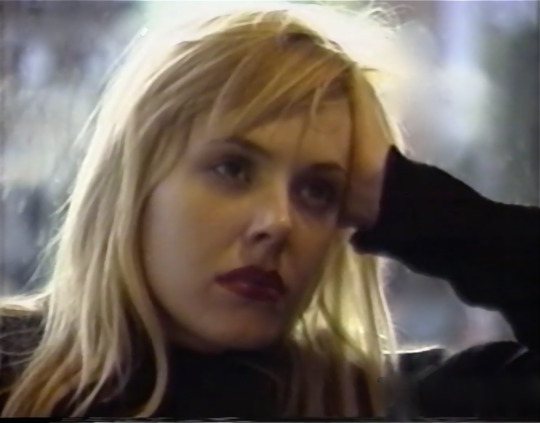
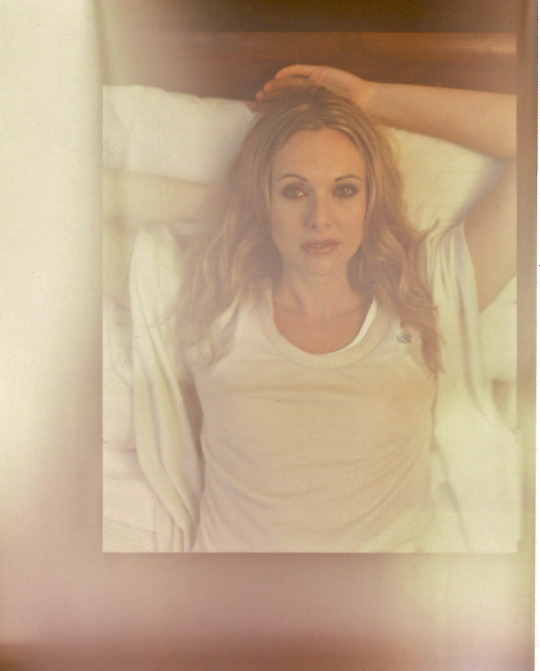
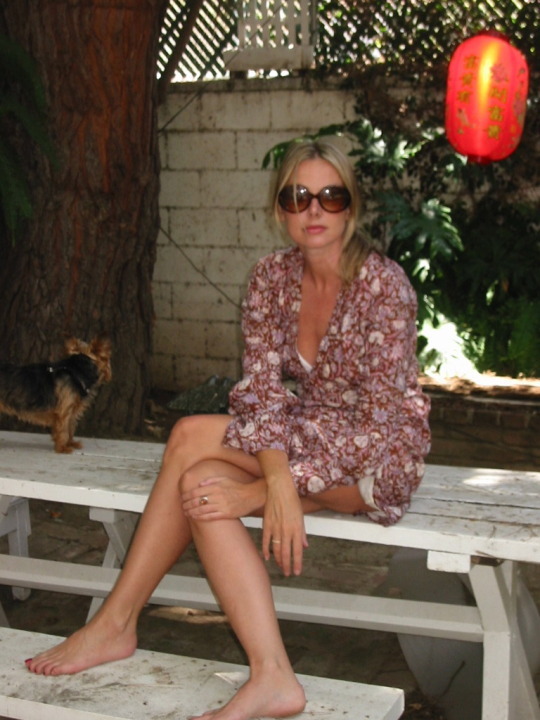



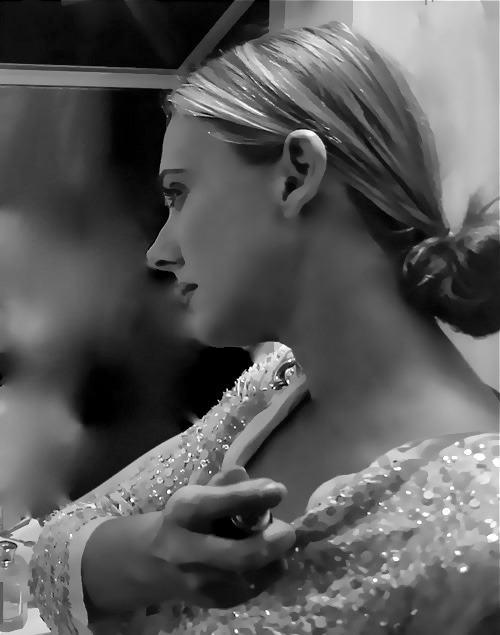

Theresa Duncan 10/26/1966-7/10/2007
Writer, Filmmaker, Game Designer, Blogger
“When you look up at the sky at night, since I’ll be living on one of them, since I’ll be laughing on one of them, for you it’ll be as if all the stars are laughing… And when you’re consoled (everyone eventually is consoled), you’ll be glad you’ve known me.”
Antoine de Saint-Exupéry, The Little Prince
29 notes
·
View notes
Quote
“What to read?” is a recurring dilemma in my life.
The question always conjures up an image: a woman at home,
half-dressed, moving restlessly from room to room, picking
up a book, reading a page or two and no sooner feeling her
mind drift, telling herself, “You should be reading something
else, you should be doing something else.” The image also has
a mise-en-scène: overstuffed, disorderly shelves of dusty and
yellowing books, many of them unread; books in piles around
the bed or faced down on a table; work prints of photographs,
also with a faint covering of dust, taped to the walls of the studio;
a pile of bills; a sink full of dishes. She is trying to concentrate
on the page in front of her but a distracting blip in her
head travels from one desultory scene to the next, each one
competing for her attention. It is not just a question of which
book will absorb her, for there are plenty that will do that, but
rather, which book, in a nearly cosmic sense, will choose her,
redeem her. Often what is at stake, should she want to spell it
out, is the idea that something is missing, as in: what is the
crucial bit of urgently needed knowledge that will save her, at
least for this day? She has the idea that if she can simply plug
into the right book then all will be calm, still, and right with
the world.
Moyra Davey, The Problem of Reading (via tweepoppy)
68 notes
·
View notes
Text
Ten photographs by Moyra Davey—folded, mailed, unfolded; including stamps, postmarks, and return addresses










96 notes
·
View notes
Quote
Here I am, a bundle of past recollections and future dreams, knotted up in a reasonably attractive bundle of flesh. I remember what this flesh has gone through; I dream of what it may go through.
Sylvia Plath, The Unabridged Journals of Sylvia Plath
(via sylviaplathquotes)
644 notes
·
View notes
Text

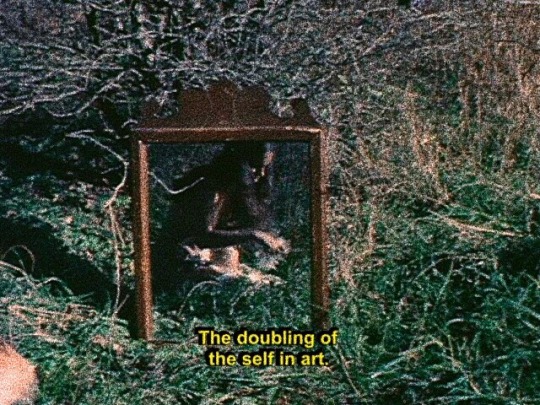
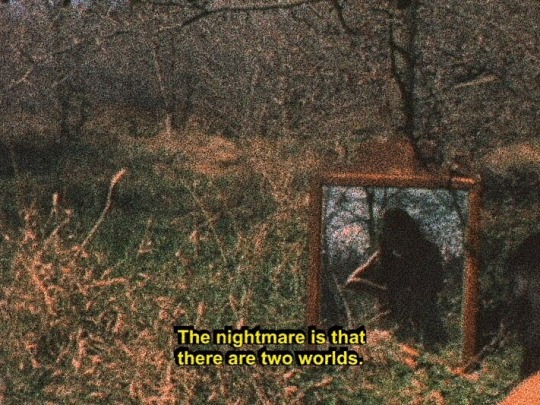
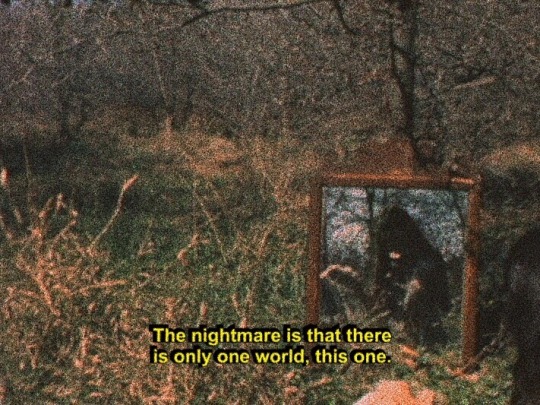
SUSAN SONTAG x ANA MENDIETA
As Consciousness Is Harnessed to Flesh: Journals and Notebooks, 1964-1980 (2012);
Mirage 1 (1974), Super-8 film transferred to high definition digital media, colour, silent. Running time: 3 minutes 15 seconds
6K notes
·
View notes
Quote
That was the year, my twenty-eighth, when I discovered that not all of the promises would be kept, that some things are in fact irrevocable, and that it had counted after all, every evasion and every procrastination, every mistake, every word, all of it.
Joan Didion (via aquaphorwhor)
443 notes
·
View notes
Text
“All that I wanted was to tempt into life things that wanted to come out of me.”
— Andrei Tarkovsky, from a diary entry featured in Time Within Time; The Diaries (1970 - 1986)
870 notes
·
View notes
Text
“All that I wanted was to tempt into life things that wanted to come out of me.”
— Andrei Tarkovsky, from a diary entry featured in Time Within Time; The Diaries (1970 - 1986)
870 notes
·
View notes
Text
“Sickened, I saw that I had unwittingly completed the last day of August. Tomorrow would be September. God! All the quick futility of my days cascaded upon me, and I wanted to scream out in helpless fury at the hopeless inevitable going on of seconds, days and years.”
The Unabridged Journals of Sylvia Plath
8K notes
·
View notes




